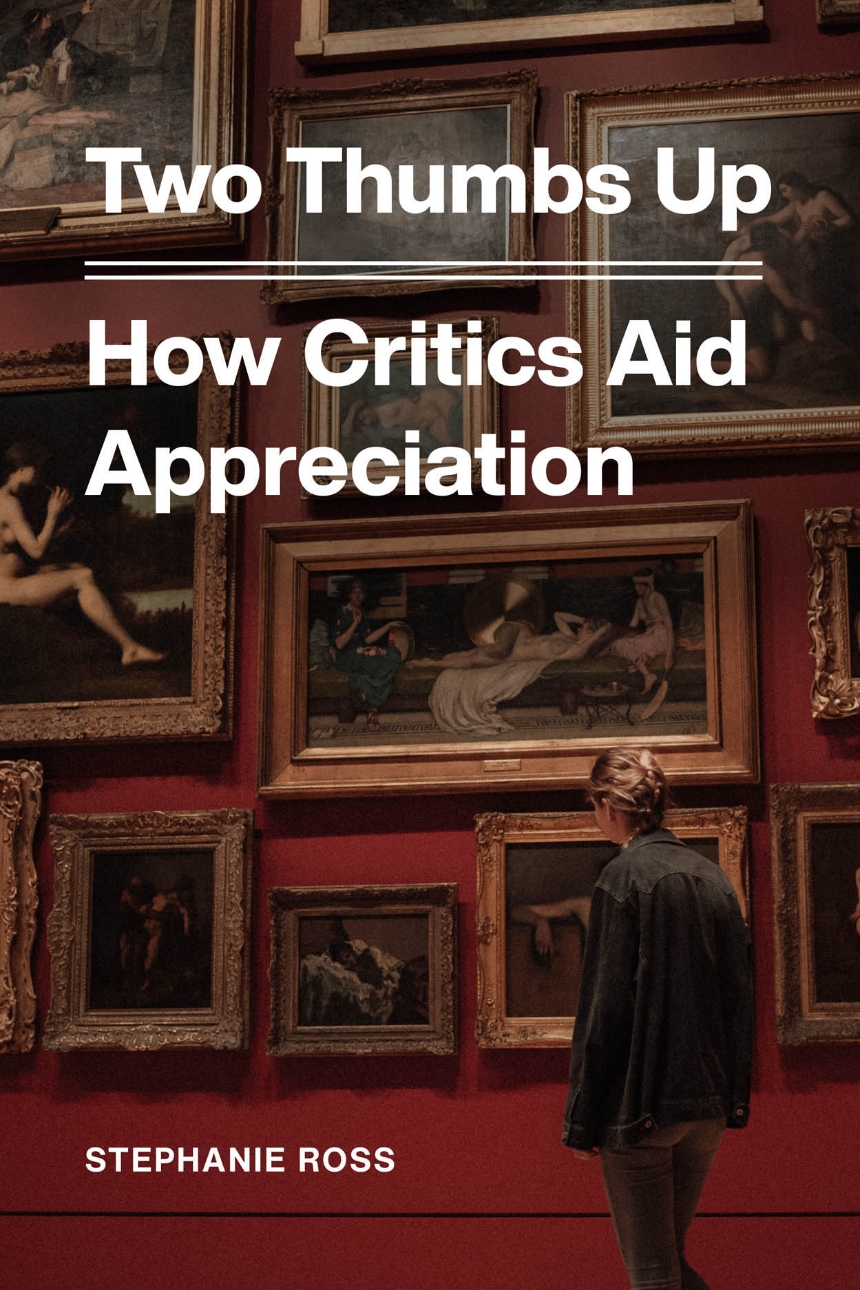Two Thumbs Up
How Critics Aid Appreciation
Far from an elite practice reserved for the highly educated, criticism is all around us. We turn to the Yelp reviewers to decide what restaurants are best, to Rotten Tomatoes to guide our movie choices, and to a host of voices on social media for critiques of political candidates, beach resorts, and everything in between. Yet even amid this ever-expanding sea of opinions, professional critics still hold considerable power in guiding how we make aesthetic judgements. Philosophers and lovers of art continue to grapple with questions that have fascinated them for centuries: How should we engage with works of art? What might enhance such encounters? Should some people’s views be privileged? Who should count as a critic? And do critics actually help us appreciate art?
In Two Thumbs Up, philosopher Stephanie Ross tackles these questions, revealing the ways that critics influence our decisions, and why that’s a good thing. Starting from David Hume’s conception of ideal critics, Ross refines his position and makes the case that review-based journalistic or consumer reporting criticism proves the best model for helping us find and appreciate quality. She addresses and critiques several other positions and, in the process, she demonstrates how aesthetic and philosophical concerns permeate our lives, choices, and culture. Ultimately, whether we’re searching for the right wine or the best concert, Ross encourages us all to find and follow critics whose taste we share.
In Two Thumbs Up, philosopher Stephanie Ross tackles these questions, revealing the ways that critics influence our decisions, and why that’s a good thing. Starting from David Hume’s conception of ideal critics, Ross refines his position and makes the case that review-based journalistic or consumer reporting criticism proves the best model for helping us find and appreciate quality. She addresses and critiques several other positions and, in the process, she demonstrates how aesthetic and philosophical concerns permeate our lives, choices, and culture. Ultimately, whether we’re searching for the right wine or the best concert, Ross encourages us all to find and follow critics whose taste we share.
Reviews
Table of Contents
Preface
IntroductionChapter One: Taste and Preference
Chapter Two: Aesthetic Qualities
Chapter Three: Hume on the Standard of Taste
Chapter Four: Identifying Critics
Chapter Five: When Critics Disagree
Chapter Six: Comparing and Sharing Taste
Chapter Seven: Some Applications
Appendix: A Checklist for Appreciation
Acknowledgments
Notes
Bibliography
Index
Acknowledgments
Notes
Bibliography
Index
